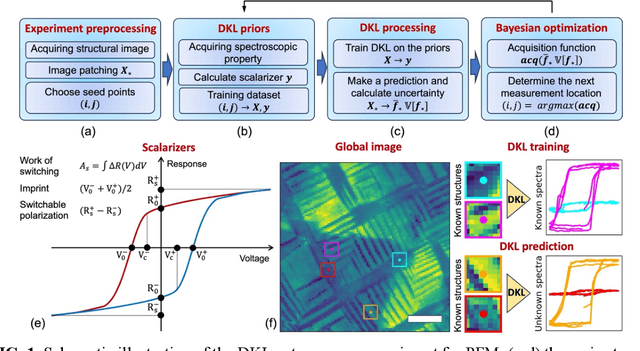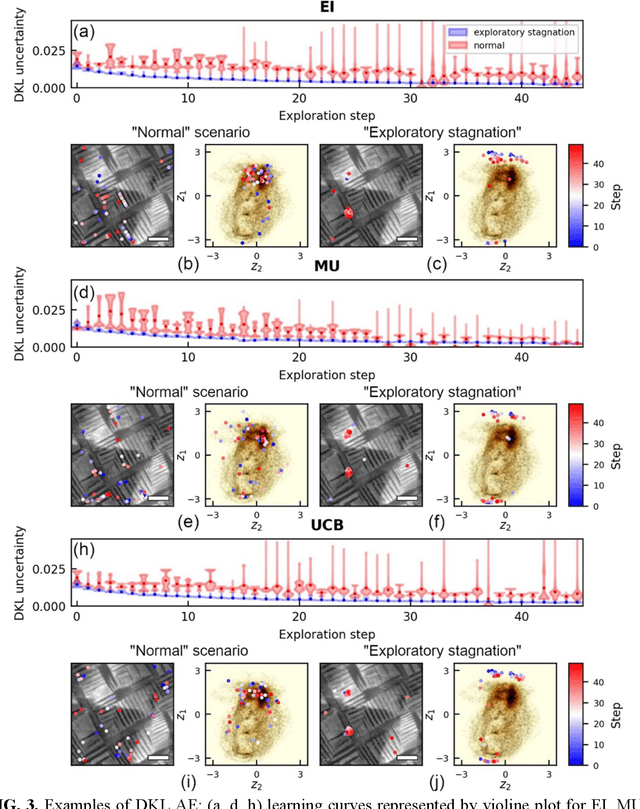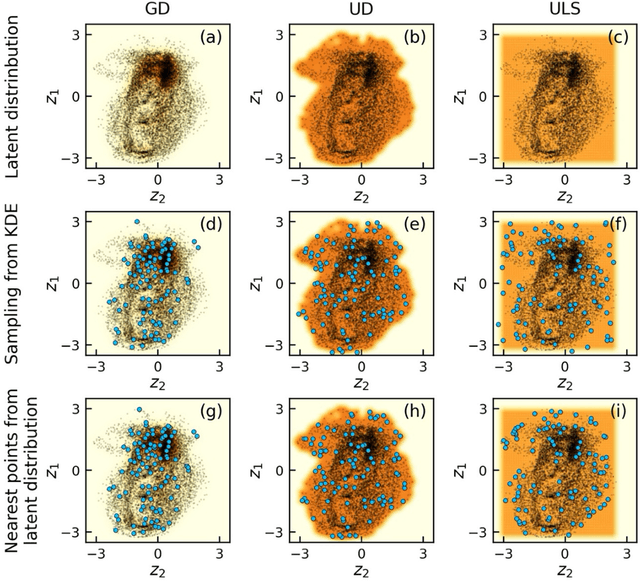Unraveling the Impact of Initial Choices and In-Loop Interventions on Learning Dynamics in Autonomous Scanning Probe Microscopy
Paper and Code
Jan 30, 2024



The current focus in Autonomous Experimentation (AE) is on developing robust workflows to conduct the AE effectively. This entails the need for well-defined approaches to guide the AE process, including strategies for hyperparameter tuning and high-level human interventions within the workflow loop. This paper presents a comprehensive analysis of the influence of initial experimental conditions and in-loop interventions on the learning dynamics of Deep Kernel Learning (DKL) within the realm of AE in Scanning Probe Microscopy. We explore the concept of 'seed effect', where the initial experiment setup has a substantial impact on the subsequent learning trajectory. Additionally, we introduce an approach of the seed point interventions in AE allowing the operator to influence the exploration process. Using a dataset from Piezoresponse Force Microscopy (PFM) on PbTiO3 thin films, we illustrate the impact of the 'seed effect' and in-loop seed interventions on the effectiveness of DKL in predicting material properties. The study highlights the importance of initial choices and adaptive interventions in optimizing learning rates and enhancing the efficiency of automated material characterization. This work offers valuable insights into designing more robust and effective AE workflows in microscopy with potential applications across various characterization techniques. The analysis code that supports the funding is publicly available at https://github.com/Slautin/2024_Seed_effect_DKL_BO.
 Add to Chrome
Add to Chrome Add to Firefox
Add to Firefox Add to Edge
Add to Edge